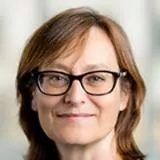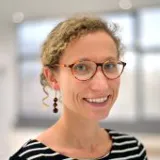Children's Screen Content in an Era of Forced Migration: Facilitating Arab-European Dialogue
This AHRC-funded project aimed to make European broadcasters, policy-makers, children’s advocacy groups and content producers aware of the urgent, unprecedented, information and entertainment needs shared by hundreds of thousands of young children who have recently fled to Europe from Arab countries and European-born children who have watched them arrive.
Research Context
UNHCR data showed that children made up 51 per cent of the world’s refugees in 2015 and that Syrians formed the world’s largest refugee population; Syrians accounted for half the people crossing the Mediterranean in 2016, while Iraq and Sudan were other Arab countries in the top 10 sources of refugees. In Europe, Germany and Sweden offered by far the largest number of places to fleeing families and separated or unaccompanied children. Thousands of Arabic- speaking families have taken up residence in Germany and Sweden in the last two years, while hundreds of unaccompanied refugee children had found homes in these countries and the UK.
This project, focused on impact and engagement, was supported by research arising from a 3-year-project entitled Orientation in the Development of Pan-Arab Television for Children (ah/1000674/1), which investigated production, distribution and content of screen media for Arab children and their use of it, including use by children of Arab heritage in the UK.
This impact and engagement project was underpinned by findings from all strands of the original research, including the fact Arab children in Europe had been exposed in their home countries not only to real-life crises but an omnipresent, unregulated stream of mediatised atrocities. Media and other bodies in Europe now need to integrate the needs of Arab and other migrant children and families into their forward planning and commissioning. For this to happen effectively, it was necessary to widen media discourse about how child audiences were understood and represented.
Our previous research project pointed to gaps that European media could fill in addressing Arab and other migrant children, whose previous experience of children’s content had been dominated by didacticism, lacking in entertaining formats, and subject to well-intentioned but top-down, stop-go production decisions by ruling elites that had not been suited to nurturing local creativity or building supply chains.
At a time of dwindling budgets for children’s screen content, there were also strong economic reasons for encouraging low-cost innovative and interactive cultural production that involved cross-border collaboration and meets urgent needs.
Engaging on issues of good practice with European stakeholders had potential for influence elsewhere in Europe, promoted learning about citizenship and local social engagement among children whose parents may be experiencing homesickness and disorientation and whose extended families were scattered across countries and continents.
Aims
This follow-on project aimed to transfer knowledge gain through research into developments in screen content for Arabic-speaking children in ways that could assist European broadcasters, policy-makers, producers and children’s advocacy groups to better understand the information and entertainment needs shared by young Arabic-speaking children who have fled to Europe from Arab countries.
Our project showed how imaginatively produced screen content for young children could fill worrying gaps in what was currently available to children on all sides of the forced migration flow at a time when young children struggled to make sense of the new environment in which they found themselves.
Our objectives were to use our original AHRC research findings to:
1. Alert European screen content practitioners to the media needs, wants and experiences of young (under 12) Arabic-speaking migrant children and families.
2. Create spaces for critical reflection and dialogue between European cultural gatekeepers who regulate, commission, fund, produce or comment on children’s content and practitioners with experience of children’s media in Arab countries.
3. Help European stakeholders to think through policy, production initiatives, public discourse and professional practice as they seek to ensure that pluralistic and high quality content is available to an increasingly diverse young audience.
4. Identify effective elements of regulation, financing, production and advocacy practice applicable to screen content aimed at young migrant children in Europe.
5. Demonstrate to key European and Arab stakeholders how children’s media rights, articulated in the UN Convention on the Rights of the Child (CRC), are fundamental to children’s future participation as citizens, and prompt further research into how screen media can help migrant children develop their identities in new environments.
6. Raise awareness of the communication needs of migrant children among a wider public.
We sought to achieve objectives 1-3 through three international workshops:
- One at the 8th Children’s Global Media Summit (CGMS), hosted by BBC MediaCity, Salford, 4 December 2017
- One at CPH: Dox – Copenhagen International Documentary Film Festival, Copenhagen, 19-20th March 2018
- One co-organised with the International Central Institute for Youth and Educational Television (IZI), Munich, Germany, 24 May 2018.
Objectives 4-6 were achieved through a series of briefings and publications based on the workshop, made available here—the project culminated with a symposium in London on 14 September 2018.
You can read more about the workshops and the symposium in the Activity tab.
Network
Our project network aimed to provide a platform for practitioners and researchers working in the fields of Arab children, media, and migration.
You can read more about it on our dedicated page.
Our Partners

Arts & Humanities Research Council (AHRC)

University of Westminster
Principal Investigator
Investigators
Contact us
Professor Jeanette Steemers
Professor Naomi Sakr
Dr Christine Singer
Postal address
Department for Culture, Media, and Creative Industries
King’s College London, Strand
London, WC2R 2LS



